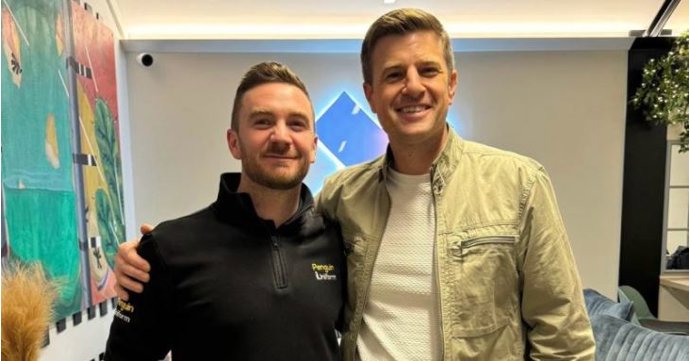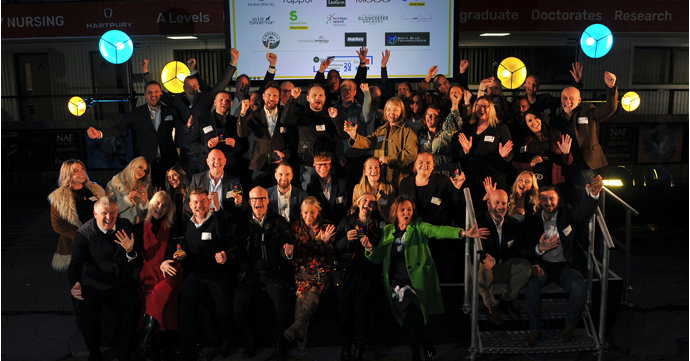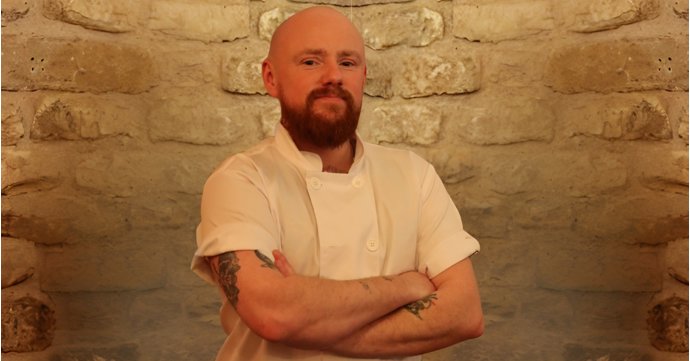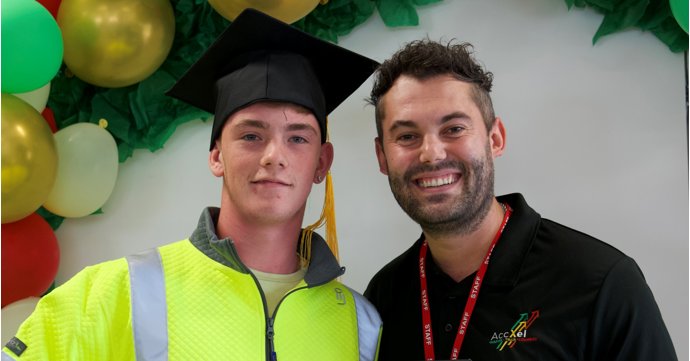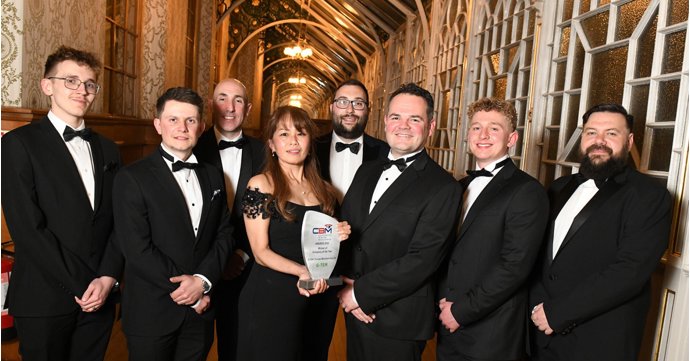Having gone from a one-man operation to a 16-strong team in just four years, Andoversford-based workwear specialist, Penguin Uniform, has enjoyed a huge increase in turnover and brand awareness as a result of investment in its workforce.
SoGlos speaks to owner Jared Wilson about how creating an environment where individuals have a voice, are challenged and supported to improve has been at the heart of Penguin's growth and expansion into new sectors in recent years.
Jared, how important has the growth of your team been in driving your business forward?
Deciding to grow means recognising the need for a team — you put a ceiling above your head by trying to run it alone. I was fortunate to have people interested in working with me early on. From previous roles, I had people asking me for a position long before they existed. I am proud to say they are all flourishing in the business, not stagnating where they were.
Growth requires great people; I always emphasise the importance of a growth mindset. Having self-awareness and the ability to know you can always learn and do more are key attributes.
How have you created a working environment which allows your team to thrive?
We avoid micromanagement and opt for a KPI-led infrastructure, which goes across the entire company. This enables me to foster an environment where employees can develop and challenge themselves and the business.
Imagine writing down all the things you did every day, and looking back to realise that you did less than a couple of hours of effective work. It shifts the mindset. My job as owner is to unearth and understand why things like that are happening, then help the team make positive changes.
There’s also a huge emphasis on the importance of every team member's voice being heard, regardless of their tenure. If someone has an idea, it’s heard and the worst thing that can happen is they're told ‘no’. I regularly remind the team we are a ‘no grey area business’. It’s good or it's not; it's yes or no — and on the occasion where there is a ‘kind of’ or ‘possibly’ scenario, we work hard to put something in place to ensure it becomes a ‘that’s the way we do it’.
What is your leadership philosophy when it comes to managing the team?
Inspired by American businessman and author Gary Vaynerchuk, I firmly believe that I work for the team, they don’t work for me. They work for the business and the customer. What I mean by this is it's my job to provide them with the tools, environment and support they need to achieve greatness. If they can do that, everything else takes care of itself.
A relaxed management style does create other challenges, like the importance of pure graft and hard work — I am an intense person to work with, I know that, and I created a high performing workplace from the start. So, if anyone falls short of that it sticks out like a sore thumb; I require a work ethic like mine.
Is that right? Absolutely not, but I do assure all staff that the next leadership position doesn’t yet exist, as none of the past ones did — but when it does, there is one way you can put yourself ahead of the game. Again, it’s a mindset shift.
How important is it to invest in equipment to help the team to grow?
I always look to invest in the latest technology to enhance productivity and support the team. I am an Apple advocate, I love the speed, build quality and my team also have the latest and greatest.
If I get a suggestion that equipment can make a difference, if it financially makes sense we invest. Whilst it isn’t directly, for me investing in equipment is — certainly indirectly — investing in the team's efficiency.
How has the rapid growth of your team affected things like training and personal development?
Our team has gone from four members in 2022 to 16 members currently. Rapid growth presents challenges in collaboration and adaptation, so working with individuals to streamline daily tasks, incorporate collaboration and implement cross or split training ensures an effective team environment.
How have you developed personally as a manager as your team has grown?
I have also needed to invest in myself and my own growth to effectively lead a larger team — I have never had four staff, five staff, six and so on.
The adaptions I have had to make to working with management and leaders, rather than every individual member of staff, has been challenging. Focusing on reading and watching relevant content, as well as avoiding distractions, have been key to making that adjustment.
How do you help your team to strive for continuous improvement in their working lives?
I encourage the team to challenge themselves and stay focused amidst distractions. The team members excelling at the fastest rates are doing all the right things; eating the right things, watching the right things, reading the right things and asking the right questions.
The world is full of distractions both outside and inside the workplace. To be a success, you must be able to focus on the right things, at the right time and block out the rest.




